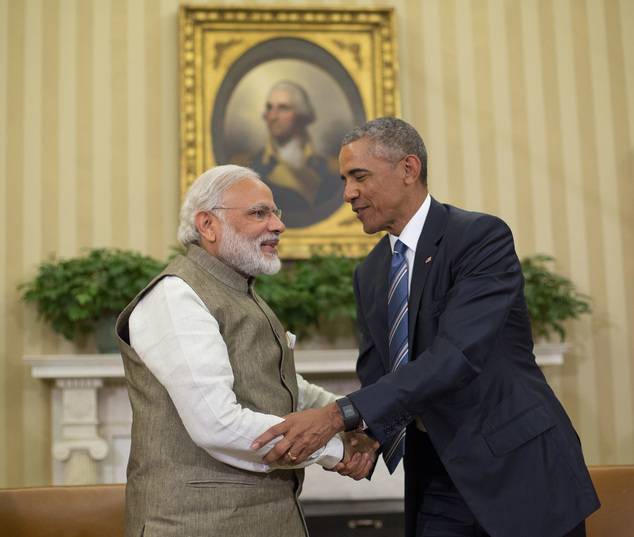India is so desperate for Nuclear Supplier Group (NSG) membership that it seems nothing else matters, including its economic and social development.
This past Saturday, a two-day summit of women parliamentarians from BRICS nations gathered to discuss sustainable development goals (SDGs), in an effort to set an agenda for the annual BRICS summit to be held in Goa, India later this year.
BRICS is a group of five countries: Brazil, Russia, India, China and South Africa. These countries hold annual summits to determine how developing nations, such as themselves, can better cooperate, improve their economies, and play a larger role in world affairs.
But instead of talking about SDGs, the Indian delegation began complaining to China, like a little child to his mother, over its failure to secure NSG membership earlier this year in Seoul.
The group was created in response to India’s 1974 nuclear test with the purpose of preventing nuclear proliferation by “controlling the export of materials, equipment and technology that can be used to manufacture nuclear weapons.”
Today, membership to this elite group of nuclear supplier countries would not help India in any tangible way because it already engages in global nuclear commerce, thanks largely in part to an unfair waiver it was granted by the group to it in 2008. A seat at the table would however improve India’s prestige, and help strengthen the nonproliferation regime.
Encouraged by the NSG waiver, and the Obama administration, India formally applied for NSG membership at the NSG plenary held in Seoul earlier this summer. At the meeting, China along with nearly a dozen other countries rejected India’s application for membership, stating that a country cannot be considered until and unless it becomes a member of the Nuclear Nonproliferation Treaty (NPT), which is a fundamental requirement for NSG membership.
India is considered a non-NPT nuclear weapon state, to become a party to the NPT it would have to give up its nuclear weapons, something India is unwilling to do—at the same time demanding NSG membership.
India continued to embarrass itself at the summit this weekend, when its representatives remained off subject and complained in a petulant way to China, claiming that India had enough clout and deserved NSG membership.
To say the least, the two-day BRICS summit of women parliamentarians did not go as planned, and given how things unfolded this past weekend, it is likely that the G20 summit scheduled to be held in China, in early September, and the BRICS summit scheduled for October in India will also be overshadowed by India’s relentless lobbying for an NSG seat.
India is not the only non-NPT nuclear weapon state that may potentially want to become a member of the NSG, other countries like Pakistan, Israel, and North Korea would also want to become part of the group to build their civil nuclear programs for power generation. The waiver India currently enjoys discriminates against other non-NPT weapon states, and weakens the nonproliferation regime.
To avoid any further complaining from India, and to be fair to other non-NPT weapons states, China and other NSG members will have to figure out how to deal with future membership applications from non-NPT weapon states.
In this regard there are two on-going arguments amongst NSG member states: the first is to remain stringent with the current rules of the NSG, and demand that the non-NPT states applying for membership give up their nuclear weapons and sign the NPT. The second argument is for a metrics system to be put in place to evaluate each membership application based on a criteria established by the NSG.
Given the current dynamics of international relations and the complexity of international as well as regional security, it is unlikely that India or any other non-NPT nuclear weapon state will give up its nuclear arsenal. For this reason, establishing a criteria based approach to NSG membership is the logical course of action for NSG member states to consider.
A criteria based approach will ensure that all states are treated fairly and without bias. It will strengthen the nonproliferation regime, and will set an excellent precedent for other such international groups to follow.
Instead of complaining abashedly about being rejected, India should push for a criteria based approach to be adopted by members of the NSG. Perhaps then India can stop embarrassing itself in front of the world, and go back to focusing on its social and economic development.
\






